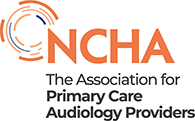12 May 2020
Covid-19 sector update – community audiology - 12 May 2020
In this update:
- Government Covid-19 strategy on next phase
- Guidance for retail premises, offices and sector guidance update
- Furlough scheme update
- Finance update
- “Locking the over 70s away”
- Official advice and guidance – quick access
- Other news
|
1. Government Covid-19 strategy on next phase All UK governments have now published frameworks or strategies detailing how they plan to move out of the current lockdown and on through the pandemic.
As we set out in our 1 May update, scenario planning to keep the R rate (‘infection rate’) down is at the heart of all these strategies. Audiology services will have a pivotal role to play in this and in preventing non-Covid harms as we move out of lockdown as soon as it is safe to do so. Although governments in all UK countries are aiming for a pan-UK approach where possible, with different R rates in different parts of the country, we will inevitably see more localised planning. This week the UK government acknowledged, for example, that at present its strategy for restarting the economy was more England centric for the above reasons and made clear:
The government’s strategy is based on enacting measures that have the largest effect on controlling the epidemic but the lowest health, economic and social costs. It will take account of the health, economic and societal impacts of Covid-19 and follow five principles: science, fairness, proportionality, privacy and transparency. The strategy signals moving from phase one – during which the focus was to contain, delay, research and mitigate – to phase two, which focuses on ‘smarter controls’. For example, backed by a strategy to expand testing and tracing, the government hopes to take a more localised approach to “stop hotspots developing by detecting infection outbreaks at a more localised level and rapidly intervening with targeted measures.” As we move into and through phase two, the government reiterated that “people will need to minimise the spread of the disease through continuing good hygiene practices: hand washing, social distancing and regular disinfecting of surfaces touched by others”. It added, “these will be in place for some time.” The UK government plans gradually to lift restrictions in three steps, only proceeding to each stage if it is safe to do so (see section 1.2). If the rate of infection is not kept under control, a second national or more localised lockdown period is possible. Perhaps most importantly for audiology and ENT is that, in phase two, the government plans to “continue to increase health and care capacity to ensure Covid-19 care for all Covid-19 patients while restoring ‘normal’ healthcare provision”. A new UK Joint Biosecurity Centre (JBC) will be responsible for setting new Covid-19 Alert levels to communicate the level of risk to the public:
The NCHA has now analysed the 60-page strategy and other guidance and is on hand to offer members one-to-one advice. Please contact us in the usual way. |
|
2. Guidance for retail premises, offices and sector guidance update The UK government has published eight guides to help employers understand how to work safely through the pandemic. The guidance aims to support employers “get their businesses back up and running and workplaces operating safely”. Firms, unions, industry bodies and devolved administrations in Northern Ireland, Scotland and Wales have all had an input into the guides which emphasise the continued advice to:
The most relevant guides for community audiology providers are:
There is also a Covid-19 secure compliance notice you can display once you have completed actions in the official guidance. You should read this alongside Audiology and otology guidance during Covid-19 (AIHHP, BAA, BSA and BSHAA) and country-specific guidance including on public health, NHS and audiology contacts (See section 6 below). NCHA members who would like bespoke advice and support can contact us in the usual way. |
|
3. Furlough scheme update The UK Coronavirus Job Retention Scheme will remain open until the end of October with flexibilities starting in August, the Chancellor announced today. This four-month extension is welcome news for the sector, and something the NCHA has been working for through the CBI and with HM Treasury. It will help protect more jobs and facilitate a phased return to practice where safe and practical to do so. Flexibilities that start in August will allow part-time working and employers will be asked to pay a percentage towards salaries of furloughed staff. We will update you when full details are published; this is currently expected by the end of May. |
|
4. Finance update
Bank of England - recession and measures taken to reduce impacts of Covid-19 In its monetary policy report and interim financial stability report for May 2020, the Bank of England (BoE) notes that Covid-19 is “dramatically reducing jobs and incomes in the UK”, as consumer spending has reduced significantly. As a result keep interest rates at 0.1% to “support households and businesses” and also continue to help banks expand lending. The BoE has also warned the pandemic will push the UK to its deepest recession on record, reports the BBC. It estimated the economy is set to shrink by 14%this year if lockdown is relaxed in June, something not seen since 1706. Its modelling also suggests that the economy will rebound but not get back to pre-virus levels until mid-2021. The BoE has acknowledged that given the level of uncertainty much will depend on how the pandemic develops.
Self-Employment financial support update HMRC has started to contact people eligible for the Income Support Scheme (SEISS). You can also now use an online tool to check whether you are eligible for SEISS. If the check says you are eligible you will be given a date on which to submit a claim. If the online tool says you are not eligible, but you believe you are, then you can HMRC to review this. The claims service will open tomorrow, 13 May, and money will be processed so that it is in your bank account within six working days, with the first payments expected in accounts on 25 May. If you are not eligible for SEISS please note the following:
Rates revaluation The government has confirmed that there will no longer be a revaluation of business rates in 2021 to help reduce uncertainty for firms affected by the impacts of coronavirus. Read more.
HMRC contact and recognising phishing emails and texts As the HMRC starts to depend more on digital forms of communication it has published advice on what you can expect to receive and how to tell if an email is fraudulent. Learn more. |
|
5. “Locking the over 70s away” Members have asked us about the equality issues with applying a universal approach to people based on age, specifically classifying all people aged 70 and older as “vulnerable” even if they do not have an underlying medical condition. Members who have an interest in this area might want to review the “Coronavirus locking the over 70s away” blog by Declan O’Dempsey of Cloisters Human Rights. The blog overs compulsion and human rights law, restrictions on movement and the European Convention on Human Rights. The NCHA has shared its concerns about compliance with the Equality Act 2010 in a recent response to the Health and Social Care Select Committee’s inquiry into ‘Delivering core NHS and care services during the pandemic and beyond’. Explaining
|
|
6. Official advice and guidance We have created a pdf resource for keeping updated with the official government, public health and healthcare Covid-19 guidance. |
|
7. Other news Action on Hearing Loss has developed new digital resources in response to Covid-19, including setting up a British Sign Language (BSL) Information Service to support Deaf people during the coronavirus (Covid-19) outbreak. North Staffordshire CCG consultation on hold. Jonathan Gullis MP asked the Secretary of State for Health and Social Care to take steps to ensure that North Staffordshire Clinical Commissioning Group is compliant with the revised NICE guideline on adult hearing loss relating to the provision of hearing aids to people with mild and moderate hearing loss. Minister of State (Department of Health and Social Care) Helen Whately confirmed that the consultation which was reviewing the local hearing aid policy had been paused as clinicians engaged in the work need to prioritise frontline duties, due to Covid-19. She added that the “CCGs currently cannot give an estimate of when this work will continue.” |

Press enquiries
Media enquiries should be directed to [email protected] or call 020 7298 5110.
We are happy to put you in touch with our expert policy advisers who can comment on a variety of issues.
You can also follow us on Twitter and LinkedIn.

 Your hearing and aural health
Your hearing and aural health  Commissioners and Policymakers
Commissioners and Policymakers  Member support and guidance
Member support and guidance News and views
News and views
 Hearing map
Hearing map
